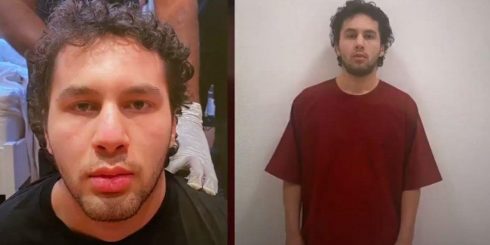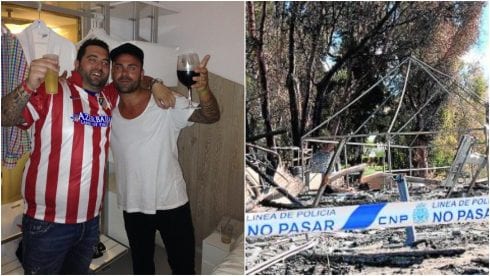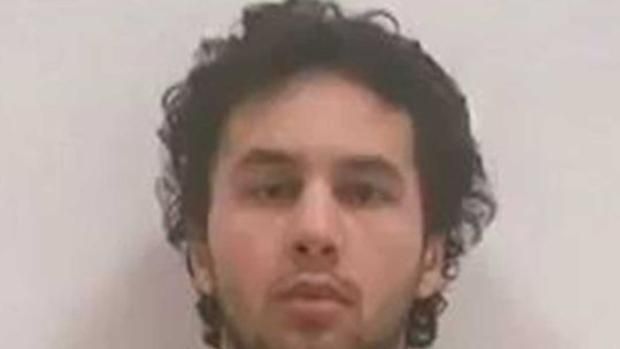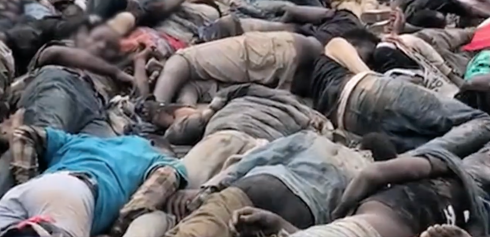THE alleged hitman accused of the 2018 execution of a narco-trafficking father in front of his wife and children at his son’s communion has had his trial postponed until ‘at least’ next year.
The trial for Amir Faten Mekky, for whom prosecutors are demanding life in jail, was due to take place in September and October this year, but has been delayed after a series of ‘basic legal errors’ by the court.
Mekky is accused of being the ringleader of a violent transnational gang known as ‘the Swedes’, linked to a number of murders on the Costa del Sol and beyond.
The Olive Press can reveal that during the entire two-year pre-trial detention, the court failed to translate a single document into Danish or Swedish, as required by law before a trial can go ahead.
Mekky’s defence lawyer Gonzalo Boye this week told The Olive Press: ‘We discovered it by accident, because of course, we receive the documents in Spanish and for us, it’s quite normal.’
‘But in our discussion with one of the accused, we discovered that they didn’t have a clear view of how [the case] had been built against them.’
Mekky, a Danish national from Copenhagen, is awaiting trial for the murder of David ‘Maradona’ Avila in May 2018 along with three other defendants, including his brother Fakhry and another gang member Karim Abdul, both Swedish nationals.

The four will also be in the dock over the execution of Sofian ‘el Zocato’ Ahmed Barrak outside his house in Estepona in the dead of night on August 20 of the same year.
However, Mekky is the only one still refused bail, some two years after his arrest, while the other three defendants have been released conditionally.
The High Court of Andalucia nullified the original trial, set to be begin this autumn, over the procedural errors, after the judge decided to move forward with the trial without an oral hearing required by law, according to Boye.
The judge also failed to take into account expert testimony that questioned the police case, the lawyer said.
And now Boye insists hopes of rescheduling a trial for March and April next year will surely be dashed by the failure to translate the court documents, which will require the case to go back to the pre-trial phase once again.
Furthermore, Boye and his team have presented a series of documents and expert reports that have questioned the evidence against Mekky and the other defendants.
They have put forward alternative explanations for the murders of Avila and Barrak that will again need to be considered by the court.
They claim that Avil’s murder is in fact linked to an Argentinian crime gang, while Barrak was murdered by ‘a person from Ceuta.’
“The Guardia Civil have even identified this person as the perpetrator of Barrak’s death,” said Boye today.
Avila, 36, was known to be a happy-go-lucky fellow up to his neck in the cocaine and hashish trade all his adult life, and had been warned by Spanish police that he was being targeted by ruthless drug traffickers over debts he was reputed to owe.
“They’re coming for you. Have you got anything you’d like to tell us?” two police officers asked him, according to El Pais.
Just two months before his murder, in March 2018, someone had rammed a stolen jeep full of petrol into his San Pedro de Alcántara gym called Marbella Fight Club, burning it to the ground.
Not long after, his chiringuito restuarant, Heaven Beach Club in Estepona, which he co-owned with Naoufal Mrabet, 41, also went up in flames.
And then a day later, Mrabet himself burned to death in a Ferrari racing disaster in Dubai, which local authorities at the time dismissed as an accident.

Related links:
The chain of horrifying events had all been intended to send a message, prosecutors believe, right up until and including the assassination of Avila, known playfully as Maradona for his atrocious footballing skills.
Avila’s slaying, which took place in front of his wife and children outside the steps of the Church of the Virgin del Rocio, was timed to send a message to others in the Spaniard’s circle who might also have owed money to the same gang.
The Dubai link proved to be enduring. Mekky, a Danish citizen thought to have previously been based out of Malmo in Sweden, just across the bridge from Copenhagen, was finally arrested in the Emirate city in the early hours of June 3, 2020.
Despite having Interpol and Europol arrest warrants out against him, Mekky eluded authorities across Europe using fake travel documents, according to Dubai authorities.
The hitman had sneaked into the UAE on November 14, 2020, almost exactly five months after the murder of Avila and three months after allegedly riddling ‘el Zocato’ with bullets, in what would have been the culmination of several years of violence, murder and mayhem.
Special forces raided his home and the kingpin surrendered himself without violence following a joint operation with Spanish investigators, as well as those from Qatar, Thailand and Sweden.
Authorities in Sweden had arrested a man thought to be a member of Mekky’s gang, which led to a number of other arrests.
The investigation led detectives to determine that the criminal gang was operating between countries such as Morocco, Thailand, Turkey, Denmark, Sweden, Spain and Dubai and Qatar.
Investigators narrowed Mekky’s location down to either Thailand or Dubai. A series of raids across hotels in the former, where wives of the suspects were thought to be staying, did not produce the ringleader.
By this time, having narrowed down the possible identities Mekky could have used, the Spanish authorities in Dubai were contacted with the list of aliases.
Dubai police staked the suspected gang leader out for some time, watching him leave the seclusion of his house only to empty rubbish into the bins outside, before conclusively identifying him.
The arrest was the final culmination of two years of a complex international investigation that gradually tightened the noose around Mekky, right up until Dubai special forces kicked down his door.
“The sting operation happened under exceptional circumstances due to movement restrictions in Dubai and the precautionary measures to curb COVID-19,” a Dubai security official said.
“We formed a legal team in cooperation with the Dubai Public Prosecution and Ministry of Foreign Affairs and International Cooperation to issue the arrest warrant and hand him over to the concerned authorities,” the official said after the arrest.
Mekky, along with three other defendants, are facing a further two years for the possession of illegal firearms.
Three alleged accomplices are also facing 12 years each behind bars for their involvement in the murders.
Click here to read more Spain News from The Olive Press.



